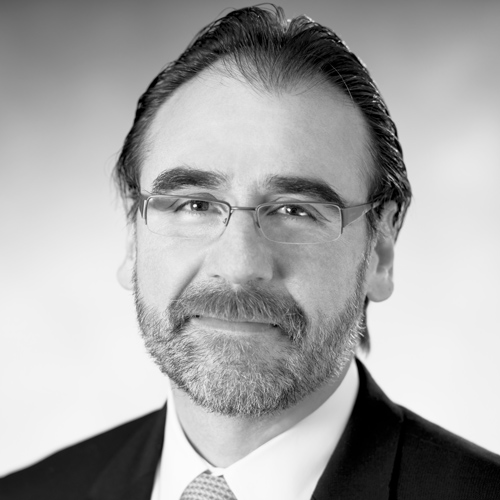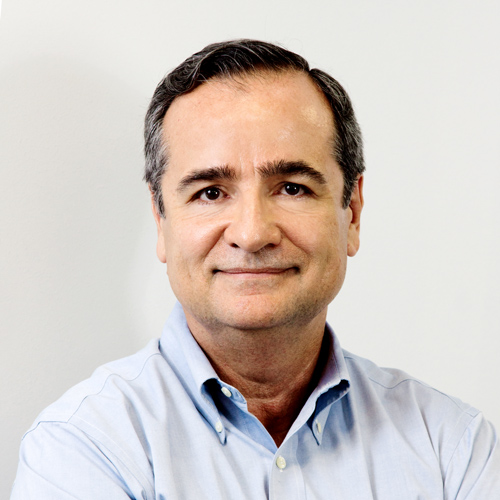Jose Galvan’s nearly two decades in investment banking appear to have followed a certain, sure-footed path from his time at a prestigious university to his current position as chief operating officer, emerging markets & credit trading with Nomura. But when he started out, finance was nowhere on his radar.
The first in his family to go to college, Galvan entered Northwestern University as a pre-med major. “I came from a predominantly Mexican, working-class neighborhood in Cicero, Illinois, so college was like walking into a completely different world,” he says. “There were people from all over the world who were as smart as or smarter than me, and I quickly realized that pre-med was going to be harder than I expected.”
During this period, Galvan made two important discoveries. One was international travel: he spent his junior year in Spain, which tapped into childhood memories of having lived in Mexico for six years. The other was recruitment at Northwestern by major financial companies. As a result, Galvan graduated with a double major in Economics and Spanish Language and Literature.
“Although I was initially overwhelmed, at Northwestern I learned to recognize and take advantage of opportunities that were all around me,” Galvan says.
After graduation, he went to work for Lehman Brothers and participated in the company’s Finance Rotation program, which provided exposure to different departments throughout the finance function. Several postings put Galvan in close proximity to the trading floor, where he found his calling.
“I want to show people with similar backgrounds what worked for me. Hopefully, they’ll see how hard work, dedication, and getting out of their comfort zones can lead to great things.”
—Jose Galvan
He hoped to enroll in the highly competitive Lehman-sponsored MBA program. However, when he wasn’t accepted, he looked to his passion for international travel and tapped into his network for possible opportunities. This led him to Lehman’s Tokyo office, which was about one-quarter the size of the New York office and enabled him to make tremendous strides in his professional development.
“The smaller environment presented more opportunities to take on greater responsibilities, so I was able to grow faster at the same time that I helped Lehman expand its Asian business,” Galvan says.
His time in Tokyo allowed him to grow personally, as well. Although he was already accustomed to navigating different cultures as a result of growing up in the US and Mexico, this experience helped him learn to better understand perspectives that were different from his own.
Only three years into his Tokyo assignment, the 2008 financial crisis occurred—and with it, the demise of Lehman Brothers. Once again, Galvan was able to leverage his positive outlook and fortuitous positioning. “Even though it was a devastating time, being in Japan was a unique situation in which I was able to see the opportunity for the next phase of my career,” he says.
That phase came about when Nomura acquired Lehman’s staff and remaining assets in Europe and Asia. The company moved him to Singapore and then back to the US to help with the growth of its New York operations, overseeing a team of ten people.
Setting up personnel and systems infrastructure from scratch presented tremendous challenges, but also tremendous opportunities.
“You usually inherit the teams you work with,” Galvan says. “But in New York, I was able to pick the ten best people I knew and bring them in. It was a very unique opportunity that not many people get to experience.
That opportunity provided a huge diversity of opinions on how the new office should operate. Under other managers, this could have resulted in conflict, but Galvan took advantage of having access to best practices and experts from banks from all over Wall Street.
“I don’t always have the right answers, so I approach everything with an open mind,” he says. “We had daily project discussions, which created a true collaboration of different ideas. They all led to ensuring that we developed the most effective processes and controls.”
Nomura still relies on the systems that the New York team put in place at that time.
Galvan has a sense of pride when he looks back on his career to date, but prefers to focus on how he can give back to students who come from backgrounds like his who need role models and advice. He makes himself available to mentor college students, and he and his wife have established a small college scholarship at his high school to benefit a single high-performing graduate each year who needs financial assistance.
When he counsels students and aspiring financial professionals, Galvan makes sure they are aware of important core values, like integrity, honesty, respect, and taking pride in one’s accomplishments. He also tells them about strategies he learned to help fuel his success: having the courage to make and accept responsibility for mistakes, then moving forward; recognizing that going it alone is much less effective than developing a network that can provide constructive feedback and new opportunities; and that if you don’t enjoy your work, no amount of money will make it worth it.
“I want to show people with similar backgrounds what worked for me,” Galvan says. ”Hopefully, they’ll see how hard work, dedication, and getting out of their comfort zone can lead to great things.”

